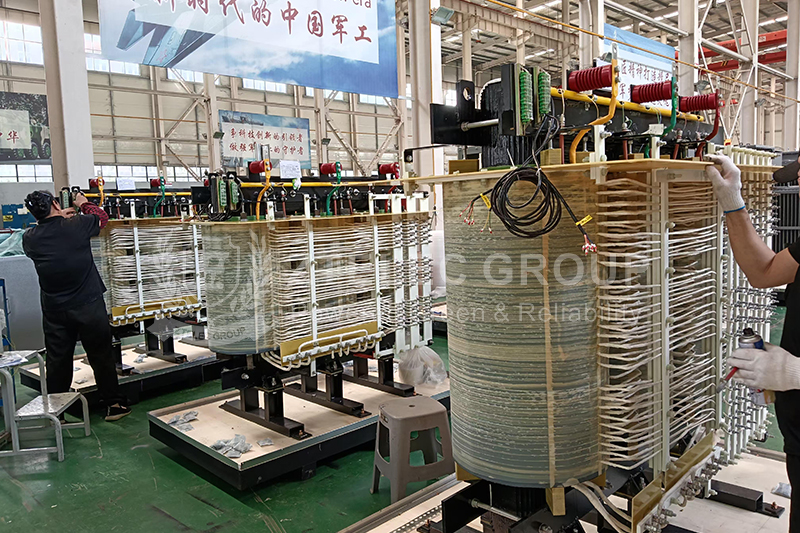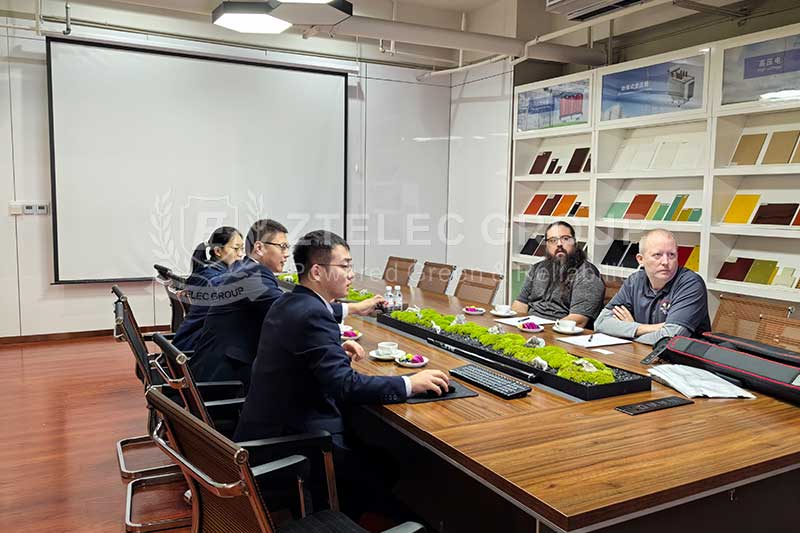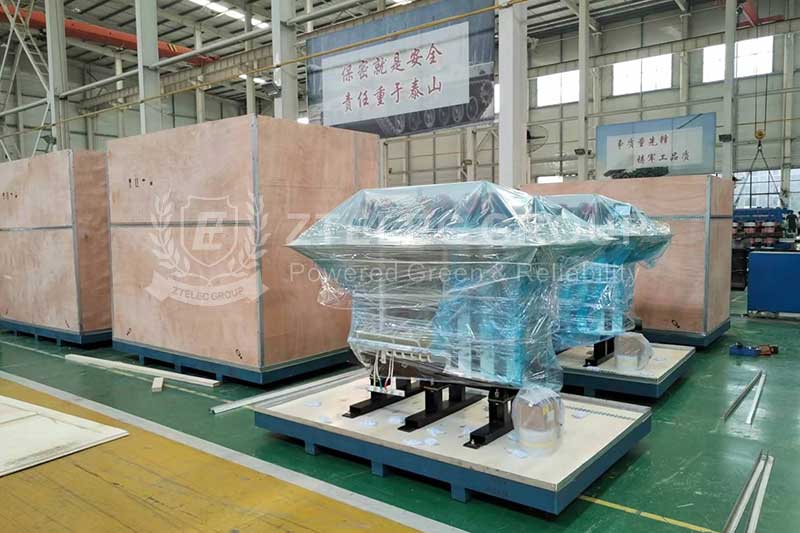European Prefabricated Substation Design: Internal Structure of High-Voltage, Transformer, and Low-Voltage Compartments
A European-style prefabricated substation is a compact and integrated power distribution device designed with advanced European engineering principles. Its hallmark feature is the use of an H-shaped or T-shaped layout, scientifically separating the high-voltage compartment, transformer compartment, and low-voltage compartment. With advantages in compactness, safety, reliability, and aesthetics, it has become widely adopted in urban distribution networks, commercial complexes, industrial facilities, and infrastructure projects.
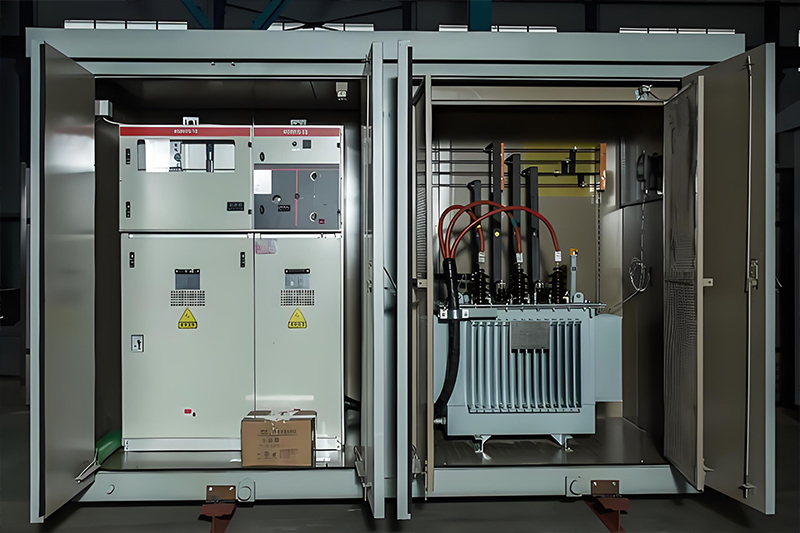
Overall Layout of a Prefabricated Substation
In a typical H-shaped arrangement, the high-voltage compartment, transformer compartment, and low-voltage compartment are positioned from left to right (or front to back). Each compartment is physically isolated with partitions and equipped with independent access doors, ensuring complete separation and avoiding electrical interference. This scientific zoning significantly improves safety and operational reliability.
High-Voltage Compartment
The high-voltage compartment serves as the input terminal for 10 kV (or higher) power sources. It manages the safe reception, distribution, and protection of incoming power.
Core Equipment: The high-voltage compartment typically includes an incoming cabinet (with load switch or vacuum circuit breaker), a metering cabinet with PTs and CTs, and outgoing/protection cabinets equipped with fuses. In many cases, a ring main unit (RMU) is integrated to provide flexible grid interconnection, improving supply reliability.
Key Components: Lightning arresters protect against surges, live line indicators ensure operator safety by showing energized states, and fault indicators provide fast fault location for efficient troubleshooting.
Transformer Compartment
The transformer compartment is the core functional area of the prefabricated substation, stepping down 10 kV high voltage to 400 V/230 V low voltage for end users. This section houses the heaviest and most heat-intensive equipment—the transformer.
Transformer Types: Most substations use SCB series dry-type transformers, which are oil-free, fire-resistant, environmentally friendly, and suitable for indoor installation. For outdoor or large-capacity scenarios, oil-immersed transformers may be applied. Typical transformer capacity ranges from 315 kVA to 2000 kVA.
Auxiliary Systems: Temperature control devices (fans, controllers, alarms) ensure safe operation of dry-type transformers. Protective mesh prevents accidental contact. Internal lighting and ventilation improve inspection and safety during maintenance.
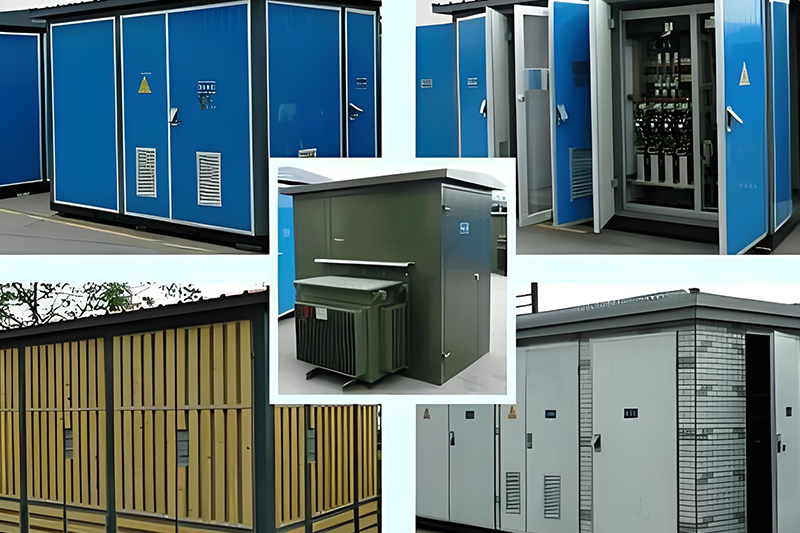
Low-Voltage Compartment
The low-voltage compartment manages the final power distribution to end users. It integrates protection, control, and monitoring functions to ensure stable operation of the distribution system.
Core Equipment: A main low-voltage switch (usually an ACB) provides overload and short-circuit protection. Outgoing circuits use MCCBs or MCBs to distribute electricity to different loads. A reactive power compensation system with capacitors and reactors improves power factor and reduces losses. Metering devices record energy usage.
Key Components: CTs provide precise measurement signals, smart meters display real-time parameters (voltage, current, power, power factor), and the busbar system interconnects circuits within the compartment.
Auxiliary Systems in European-Style Substations
In addition to the three major compartments, European-style prefabricated substations include auxiliary systems that enhance safety and performance:
Enclosure: Typically made of steel, aluminum alloy, or GRC, providing protection against dust, moisture, UV, rust, and vandalism.
Ventilation and Cooling: Natural convection through louvers or forced ventilation fans regulate temperature.
Anti-Condensation System: Heaters and humidity controllers prevent moisture accumulation in damp environments.
Grounding System: All enclosures and armored cables are solidly grounded, ensuring personal safety and stable operation.
The internal structure of a European-style prefabricated substation is based on scientific compartmentalization of high-voltage, transformer, and low-voltage sections. This design not only optimizes safety and reliability but also improves operational efficiency and ease of maintenance. Thanks to its compact footprint and advanced engineering, the European-style substation has become an essential solution for modern power distribution in cities, industries, and infrastructure projects.
1250kVA oil immersed transformer price
1600kVA oil immersed transformer
FR4 Machined Parts
1250kVA oil immersed transformer
Filament Wound Epoxy Tube
- more+releated article
- 2026-02-281250kVA Oil-Immersed Transformer Price and Cos
- 2026-02-27Detailed Explanation of FR4 Machined Parts Mac
- 2026-02-27Custom 1600kVA Oil Immersed Transformer Manufa
- 2026-02-26Precision FR4 Machined Parts for Electrical In
- 2026-02-26High-Quality Industrial 1250kVA Oil-Immersed T
- 2026-02-25Why is Filament Wound Epoxy Tube More Expensiv
- 2026-02-25XUJUE ELECTRICAL Officially Resumes Operations
- 2026-02-25Solar Duty Transformer: Sizing Challenges, Inv
- 2026-02-11Ztelecgroup Annual Gala Successfully Held
- 2026-02-10G10 epoxy board in the insulation parts of ele

